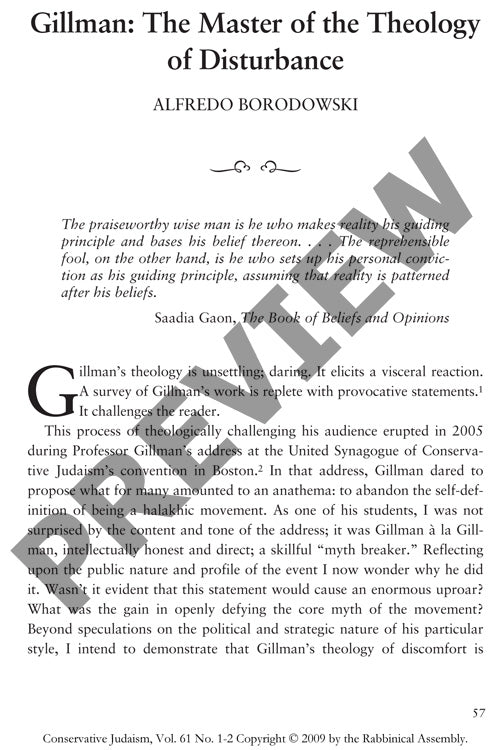Gillman the Master of the Theology of Di
Couldn't load pickup availability
Neil Gillman's theology of disturbance fundamentally challenged Conservative Judaism by demanding authentic dialogue between critical scholarship and lived religious practice. Through his interdisciplinary synthesis of anthropology, sociology, and theology, Gillman developed a radical methodology that moved beyond traditional halakhic discourse to probe why Judaism employs legal frameworks in the first place. At the Jewish Theological Seminary, he identified a problematic divide between rigorous academic study and religious life that led to what he termed the "infantilization" of the community. Rather than accept this separation, Gillman positioned theology as a crucial bridge between intellectual inquiry and religious praxis, notably shifting focus from God to revelation as the primary theological concept to emphasize community partnership in religious development. His approach elevated personal theology and community narratives to the status of sacred text, disrupting traditional academic hierarchies. This theological framework culminated in his controversial 2005 proposal for Conservative Judaism to abandon its self-definition as a halakhic movement - a call that exemplified his insistence on aligning communal identity with actual practice. Gillman's mature religious vision ultimately reframes ongoing tension and disturbance not as problems to resolve, but as virtues essential to meaningful religious life in dialogue with critical scholarship.

More Information
-
Physical Description
-
Publication Information
Published 2008-2009
ISBN
-
Publication Credits
Alfredo Borodowski

